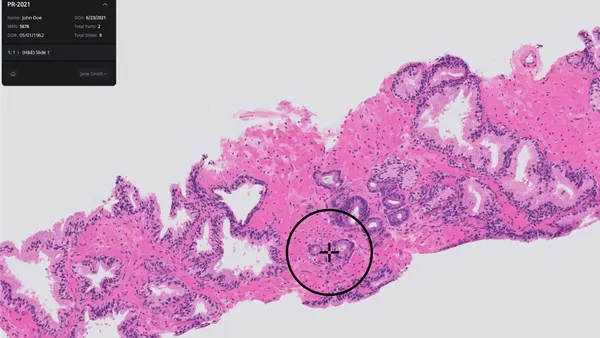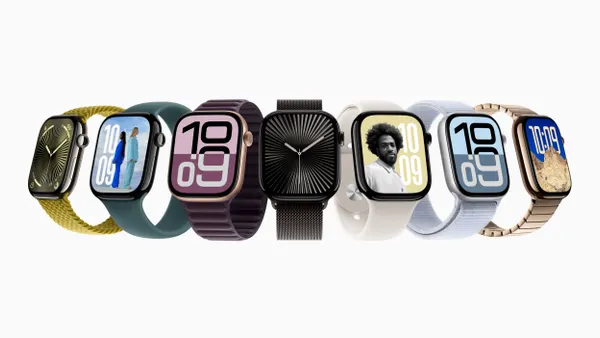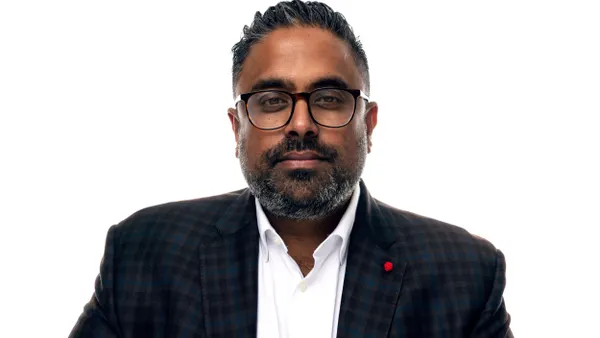Dive Brief:
- Philips' recall of millions of sleep apnea and ventilator devices has contributed to a double-digit drop in sleep and respiratory care sales in the second quarter, overshadowing the company's recovery from the effects of the coronavirus pandemic.
- Sales at Philips' connected care business, which includes sleep and respiratory care, fell 16% versus the pandemic-boosted second quarter of 2020 as orders of new systems ground to a halt.
- The travails of the sleep and respiratory care unit distracted from growth in other parts of the business. With elective procedures tracking above pre-pandemic levels, Philips grew sales by 9% despite the headwinds faced by the connected care business.
Dive Insight:
Philips reported growth at most of its businesses, with revenues at the diagnosis and treatment unit rising 16% amid growing global demand for image-guided therapy, enterprise diagnostic informatics, diagnostic imaging and ultrasound. Philips CFO Abhijit Bhattacharya said during the Monday earnings call that the growth is expected to continue "as hospitals normalize their operations and also work through the backlog of patients."
However, analysts rarely asked Bhattacharya and CEO Frans van Houten about the recovery of the diagnosis and treatment unit on Philips' second-quarter results conference call, instead focusing on the fallout of the sleep apnea and ventilator system recall that the company began in June.
Philips made a €250 million ($294 million) provision linked to the Class I recall in the quarter, causing income from continuing operations to fall to €65 million, and the long-term financial impact could be still more significant. The second-quarter hit is on top of an additional €250 million loss the company reported during its first-quarter earnings call.
With ResMed pushing to win share of the market as Philips races to recover, the event could reshape the sleep apnea sector. However, van Houten downplayed the threat.
"We do not expect this issue to have a substantial impact on the fundamentals of our sleep and respiratory care business, nor on the growth dynamics of this market," the CEO told investors.
Baird analysts argued otherwise, writing that Philips could lose hundreds of millions of dollars over the next 12 months if orders for sleep apnea and ventilator machines remain unfilled, with rival ResMed standing to benefit from those losses.
"If Philips maintains this posture for the duration of the expected 12-month repair/replace cycle, based on company disclosures, it may represent nearly an $800M global revenue disruption," the analysts wrote in a Monday report. "Therefore clearly, and unsurprisingly, ResMed has substantial near-term opportunity."
The near-term impact is considerable. Philips had a €1.1 billion-a-year sleep business before the pandemic, 60% of which came from system sales. Once Philips announced the repair action, it "didn't sell any more of the systems," Bhattacharya said. Mask sales continued after the disclosure of the repair action.
By ramping up production of sleep apnea systems and repair kits from 30,000 units a week to 80,000 units by the fourth quarter, Philips expects to address all the affected devices within 12 months of regulatory approvals. How long it will take Philips to get the required regulatory approvals is one of many unknowns.
Philips also faces the prospect of regulatory investigations. Van Houten said he feels good about how Philips will "stand up to scrutiny" and does not anticipate it will need to change its ways of working. Philips entered into a consent decree with FDA over a separate issue in 2017.
The impact of legal challenges is another uncertainty. Van Houten said "some civil complaints and personal injury claims have been filed in courts" but added it is too early to speculate about Philips' exposure. Philips plans to defend its position. An analyst also asked Philips about the potential for it to take legal action against companies that marketed ozone cleaning that is implicated in the quality problems.
Bhattacharya did not rule out legal action, stating only that Philips has not made any provision for filing legal cases and cannot make a "reasonable estimate" of the potential costs at this stage. Van Houten, in response to another question, drew a correlation between use of ozone cleaning and incidences of quality problems.
"Aggressive marketing has taken place, even to the extent that the FDA issued their own warning in the beginning of 2020. Now, if we look at the correlation, or let's say, when did we start seeing complaints coming in the United States, then the vast majority of the complaints are in 2020. And, also geography-wise, we can, let's say, correlate to the regions where ozone cleaning was marketed more strongly," the CEO said.
The company's stock price was down over 4% when the U.S. market opened Monday.











